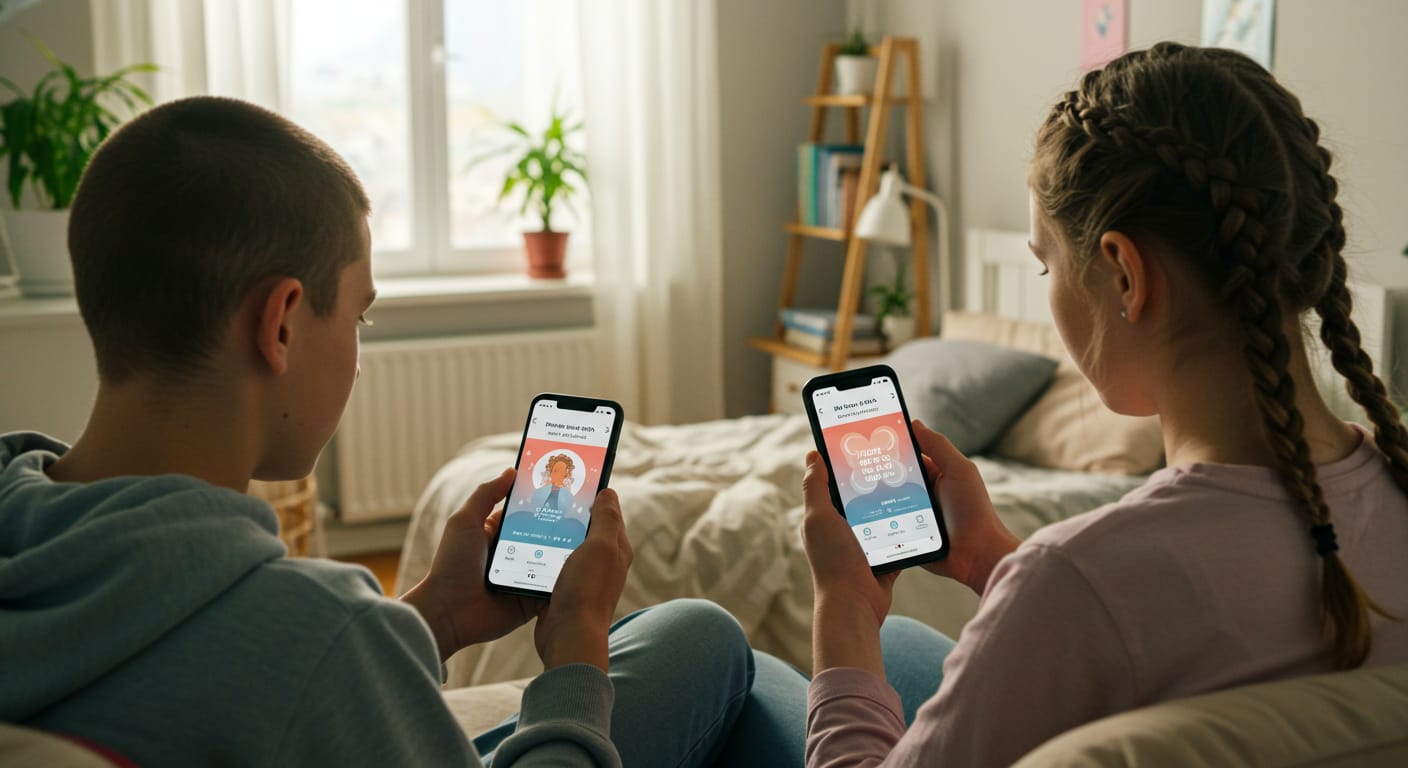Stress Tests & Trials in the Digital Age
“Kids have it too easy.” Do they really?
Today’s teens face a complex blend of academic pressure, bullying, social media influence, hormonal changes, and identity struggles. Far from being “easy,” these challenges contribute to growing mental stress—and it’s more serious than many adults realize.
Studies show that 1 in 10 children in the U.S. experiences mental health issues such as anxiety or depression. Parents aren’t the only ones looking for solutions—teens themselves are seeking new ways to cope with the pressure.
How Technology Is Helping Teens Manage Mental Stress
Technology, once blamed for much of teens’ anxiety, is now being used to help fight it. From apps to messaging services, modern digital tools are being tested as supportive methods to track emotions, manage anxiety, and offer mental health support.
Two noteworthy platforms helping teenagers handle stress are:
1. Crisis Text Line (via DoSomething.org)
Teens love texting. That’s the core idea behind Crisis Text Line, a free 24/7 support service. When struggling with family drama, school stress, relationships, or overwhelming emotions, teens can simply text a trained counselor for support.
-
The service is confidential, immediate, and teen-friendly.
-
It’s a safe space where adolescents can share their thoughts without judgment.
-
Counselors are trained to provide emotional support and direct teens to helpful resources.
Why it works: Texting feels natural to teens. It’s private, easy, and accessible—even at 2 a.m.
2. Mood 24/7 – A Digital Mood Journal
Mood 24/7 functions as a digital diary, sending users daily text prompts to rate and reflect on their emotional state. It tracks changes over time and builds a comprehensive mood report that can be shared with doctors or therapists.
-
Teens (or adults) receive a message asking, “How are you feeling today?”
-
They respond with a rating and a quick note, creating a log of emotional ups and downs.
-
This helps identify patterns in mood and behavior, offering insight into mental wellness.
Are These Technologies Truly Effective?
While these tools provide convenient support, many mental health professionals caution that they are supplements—not substitutes—for therapy and parental involvement. Human connection, particularly through counseling and open family communication, remains the most effective treatment for teen mental health.
Still, digital solutions play a valuable role in:
-
Breaking the stigma
-
Providing instant relief
-
Making mental health support more accessible
Conclusion: Support Must Be Holistic
Effective use of technology in managing mental stress isn’t about replacing traditional therapy—but enhancing it. Encouraging teens to use these tools while also engaging in healthy offline habits like journaling, physical activity, and conversations with loved ones creates a balanced approach to mental health.
Parents, educators, and caregivers should embrace this tech-assisted era—while always prioritizing compassionate, real-life connection.



Sometimes technology is good. Sometimes teen need a little more direct contact.
Debbie, Glad You like the post.
This is such an interesting topic. Stress and depression have been around for a very long time. Technology can definitely help to pinpoint the triggers. Which will aid counselling.
Bridgitte, If Technology is use correctly it may work for some Teens. This is fairly new we just have to wait and se. Thanks for your support.